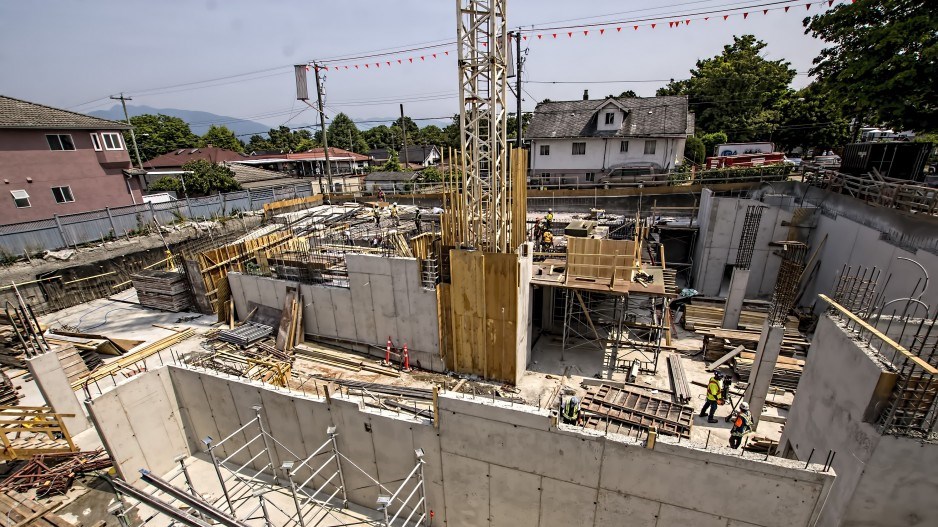A greater volume of land use regulations is directly linked to increased unaffordability in Canadian cities, according to a new Canada Mortgage and Housing Corp. (CMHC) and Statistics Canada survey.
Metro Vancouver and Greater Toronto earned the survey’s highest residential land-use regulation scores at 98 and 100, respectively.
Greater Toronto’s score is meant to serve as a yardstick. Scores below 100 indicate less regulation than the Toronto area while scores above that figure indicate more regulation relative to the area.
The rest of B.C. received a score of 79, Greater Edmonton received a score of 73 (Calgary wasn't included) while Manitoba scored 71. The rest of Alberta scored 68, just two points above Saskatchewan, which had the lowest score at 66.
"Because housing supply is so important, we want to look into the different things that might be holding supply back. This is one of those things … that we can look at in order to find ways to make the responsive supply more efficient so we can improve housing affordability,” CMHC chief economist Bob Dugan said in an interview.
The 2022 Municipal Land Use and Regulation Survey fills in gaps from a previous CMHC report released in 2018. The earlier report expressed concerns about the connection between land-use regulation and increasing prices in large metropolitan areas. Dugan said the most recent survey validated those concerns.
“It confirmed what we found back in 2018, that higher levels of regulation tend to be associated with lower levels of affordability, probably because it has an impact on how quickly housing supply can respond to increasing demand conditions,” said Dugan.
Metro Vancouver also ranked first for housing approval delays, scoring 101 versus the lowest score of 27 notched by Manitoba and Alberta excluding Edmonton, which scored 38.
Both the Vancouver and Toronto areas have approval times that are almost four times as long as regions with more affordable housing, according to the survey.
Dugan said that one of the biggest predictors of unaffordability is the delay in housing approvals.
“Longer approval times seem to be the most highly correlated with affordability challenges,” he said. “In an environment of high interest rates, if a developer is holding onto a property and financing the cost of that property at higher rates for longer, that can add to costs and ultimately gets reflected in the price,” he said.
Vancouver is ranked as the most unaffordable area in Canada based on having the highest house-price-to-income ratio, according to the July 13 report.
The Vancouver census metropolitan area (CMA) received a housing price-to-income ratio of 14.18, while the Victoria CMA received a 10.04. These are the only two CMAs in Canada with a ratio above 10. The rest of B.C. scored 7.45 while Manitoba had the lowest price-to-income ratio in the West at 3.32. Saskatchewan was second lowest in the West at 3.68.
The hope is that this data can inform municipalities and urban centres on the biggest barriers they face to adding more housing supply and improving affordability.
Dugan said results of the survey “feed nicely” into the Housing Accelerator Fund, which provides incentive funding to local governments who create initiatives to increase supply.
“Maybe this helps them identify where the low-hanging fruit is or the biggest impediments to supply so that they can successfully participate in the program and get access to funding that will help improve the supply of housing in their municipality,” he said.
Dugan said the CMHC hopes to do more research in this area but wanted to publish data as fast as possible to inform municipalities and give researchers access to survey results.



